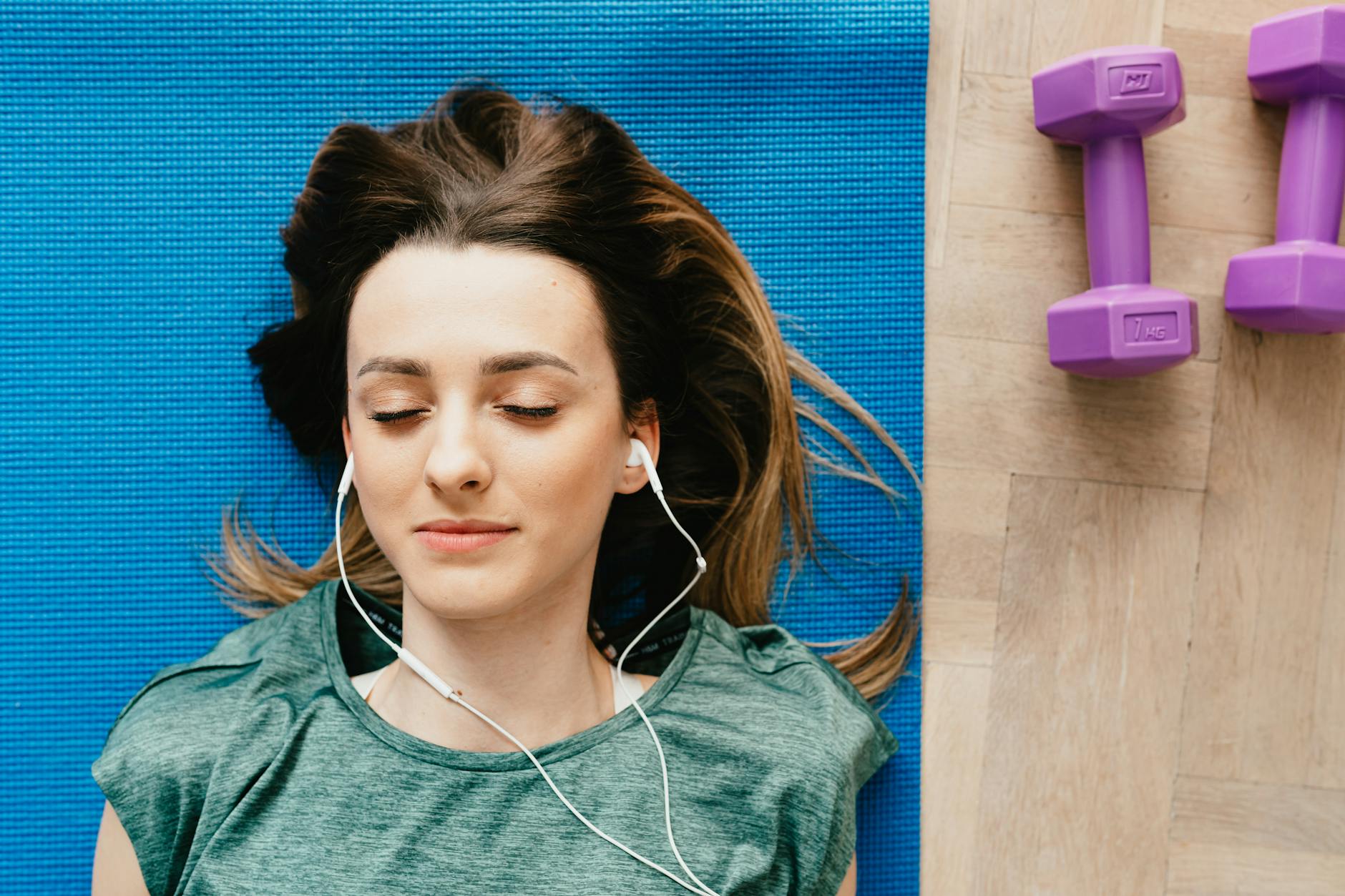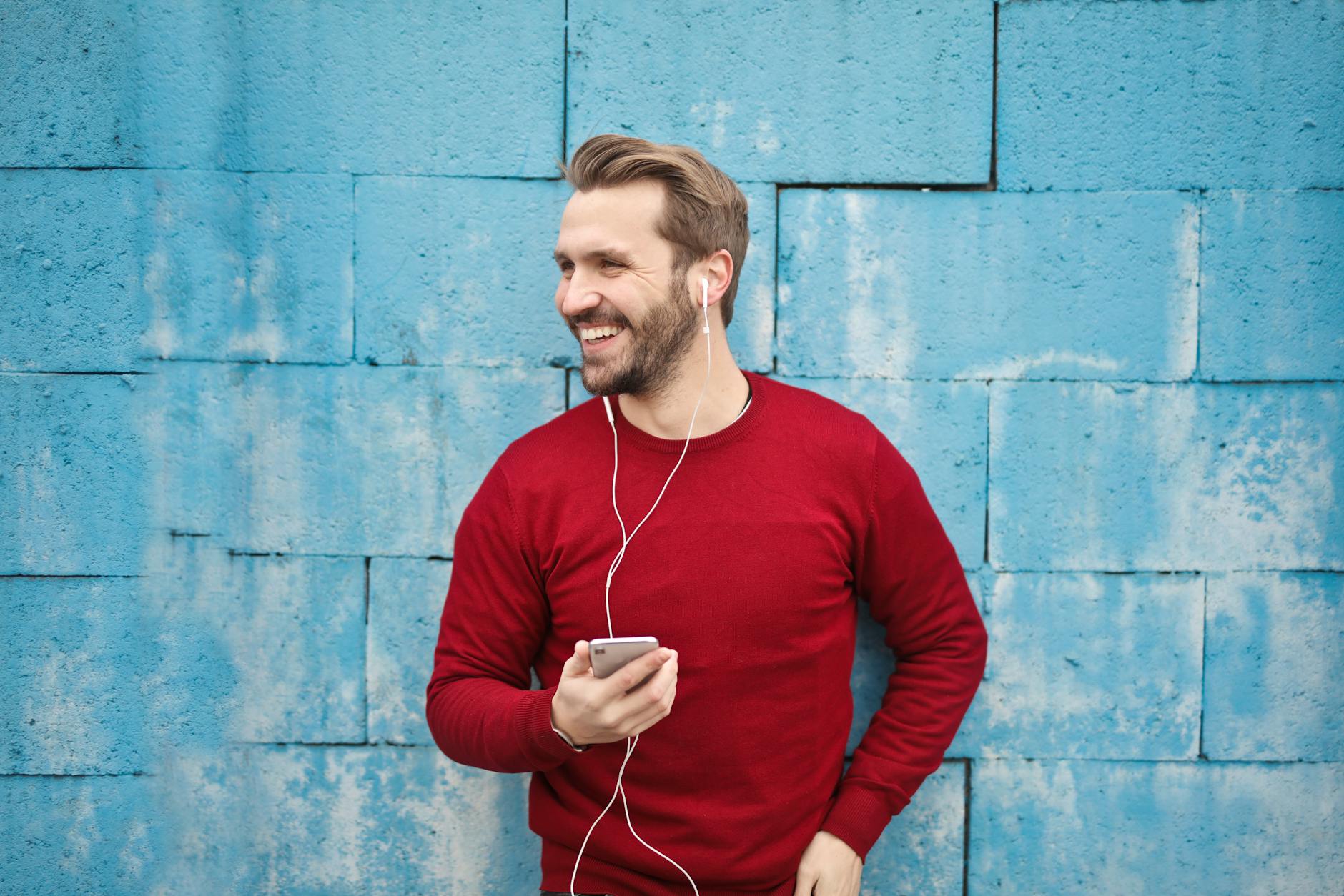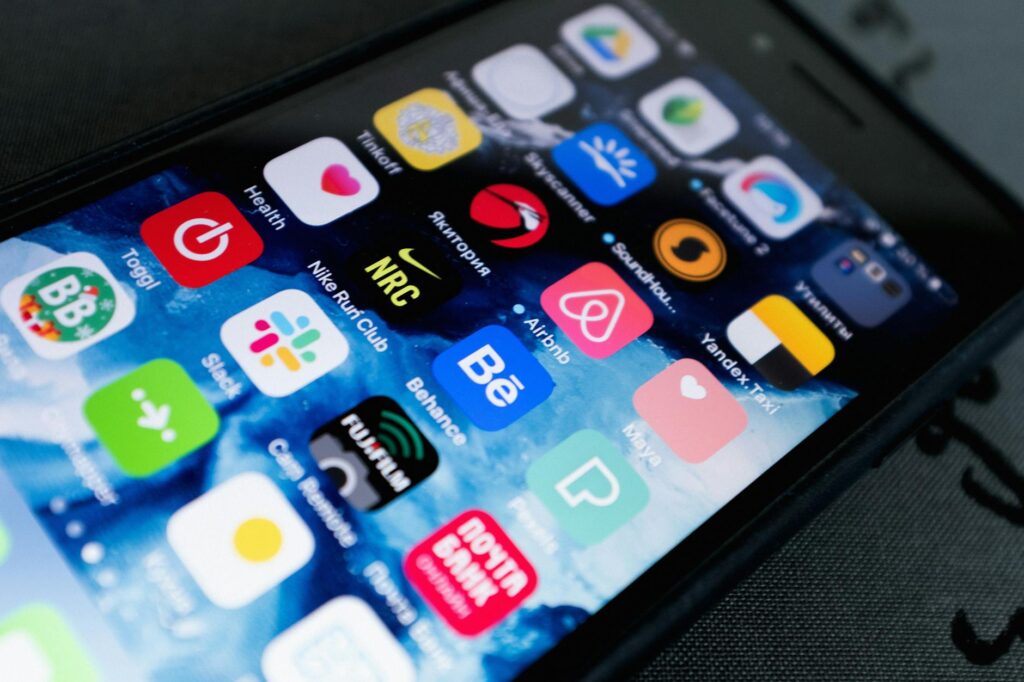
Naturally, in an anxious state, we run to our phones for help. Phone addiction has been a source of some of my anxiety. Research may support my claim too. Is anyone else doom-scrolling their life away on Instagram Reels and TikToks? I keep reading that we need to spend less time on screens and more time socialising with humans and spending time in nature. Both socialising and nature sincerely helped me overcome anxiety and depression. I think there is some truth in that.
On the flip side, my phone has played a valuable part in supporting my health through mental health-related apps. Without them, I wouldn’t know anything about meditation or the breathing techniques I use today. Plus, they have provided me with fast support wherever I might be in a panic. You can easily pull out your phone in most quiet places and meditate or listen to positive affirmations.
Now, this is hardly an all-encompassing list of apps, but these are the ones I have personally used throughout my journey thus far.
Calm
Why I chose it?
I had seen this app through digital marketing. It was also one of the very first apps to show up in the app store when I searched for “anxiety.” It had thousands of positive reviews and featured a 7-day free trial. Is any of that important? Besides the free trial, maybe not, but I downloaded it first.
What I found?
I wasn’t sleeping much at night. I would wake up in the mornings depressed, agitated, soaked in sweat, and desperate. I opened this app and learned about meditation—something I never understood and still find challenging today. I can imagine the voice of Elisha Goldstein, who narrated the “anxiety release” meditation. This was the first I practised, and I have listened to it probably over 100 times. I can almost imitate his voice perfectly. I focused on my breaths, grounded my mind, and let go of my emotions. I found enough tranquillity in it to keep practising. Eventually, it helped me relax, but I still find it hard to not have many thoughts hijacking my attention.
Calm also features “stories” to help put you to sleep. The stories are very long and descriptive tales that are not overly interesting. This makes them perfect for putting you to sleep. There is even one narrated by Harry Styles, Kevin Bacon, and some serious star power here. They didn’t work to put me to sleep, but I see how they may for others.
There is a huge mix here: walkthroughs to explain how to meditate, music to aid in sleep and calm, and tools to give you guidance on mental health. It was helpful for me, even without buying the full product.
- Breathing Exercises: Calm includes specific guided breathing exercises designed to help users manage stress and anxiety.
- Sleep Stories: Calm is well-known for its extensive collection of “Sleep Stories,” which are bedtime stories designed to help adults and children fall asleep.
- Masterclasses: Calm features masterclasses taught by world-renowned experts on various topics related to mindfulness, mental health, and personal development.
- Calm Body: Calm includes gentle stretching and movement exercises under the “Calm Body” section, promoting relaxation and physical well-being.
- Sleep Music and Soundscapes: Calm offers a broad range of calming music tracks and nature sounds that can aid relaxation and improve sleep quality. These are specifically designed soundscapes that can be used in the background.
- Daily Calm: Calm provides a new daily meditation called the “Daily Calm,” which is a short session focusing on different themes each day.
- If you want to try it: Look here

Headspace
Why did I choose it?
You guessed it again, marketing! It was the second app I found in my app store and heavily promoted on the internet. Again, thousands of positive reviews and a free 14-day trial. With much to pick from, it felt like a logical option to try. It gets overwhelming, scrolling through so many choices, and I seem to look for what’s popular.
What I found?
Many of the same benefits I found in Calm: meditations, mindfulness exercises, sleep stories, music, courses, and white noise. It is just as helpful in meditations and offers a nice variety for me. Headspace feels structured and educational, making it easy for new users starting out. It does have a bit less content than Calm, which has a lot of diversity, providing more avenues to explore, in my opinion. Both are solid choices, and Headspace might be best if you are brand new to these apps.
- Short SOS Meditations: Headspace offers quick, short SOS meditations for immediate relief in stressful situations, which can be done anytime, anywhere.
- Structured Courses: Headspace offers structured meditation courses that focus on specific themes such as stress, sleep, relationships, and personal growth. These courses are often designed as progressive series, helping users build their practice over time.
- Animations and Videos: Headspace uses animations and videos to explain mindfulness concepts and meditation techniques in a simple, engaging way. This can be especially helpful for beginners.
- Daily Meditation: Headspace provides a new daily meditation called “Today’s Meditation,” which is fresh content designed to keep the practice engaging.
- Move Mode: Headspace includes a “Move Mode” with guided physical exercises and mindful movement sessions to promote physical as well as mental well-being.
- If you want to try it: Look here

Smiling Mind
Why did I choose it?
I found it on a “best free mindfulness apps” blog. The review sounded positive and yes, it’s completely free, not-for-profit, and partially funded by donations and sponsors. To me, things like this just feel like they have integrity. It may not have Harry Styles, but my impression at the time, right or wrong, was that it must be genuine.
What I found?
This one is extremely educational and built for everyone. There is a section for kids, parents, adults, families, and workplaces. It also focuses on educators and students, where the other two do not. A really “something for everyone” approach is given.
Like Headspace, Smiling Mind offers structured programs that guide users through a progressive mindfulness practice. This contrasts with Calm’s broader content library, which includes sleep stories and masterclasses.
You will find guided meditations and mindfulness tools built on an evidence-based approach. That means it leans on the use of current, best-available scientific research and data from doctors and clinicians.
For my personal use, I found it contained less content for me. It ran out a bit quickly, and all the other content seemed to be for people not in my personal position. Considering it is free, it is a good option to get started. If you are a teacher, looking for a workplace, or for your family, it could be your go-to.
- Guided Meditations: The app includes a wide variety of guided meditations designed to address specific issues such as stress, anxiety, sleep, concentration, and relaxation.
- Mindfulness Practices: Smiling Mind provides mindfulness practices that users can integrate into their daily routines. These practices are designed to help users stay present and develop a consistent mindfulness habit.
- Offline Access: Users can download sessions for offline access, allowing them to practice mindfulness even without an internet connection.
- Evidence-Based Approach: Smiling Mind emphasizes an evidence-based approach to mindfulness and mental health, with content developed by psychologists and health professionals.
- Progress Tracking: The app allows users to track their progress and see how their mindfulness practice evolves over time.
- If you want to try it: Look here
Look, all three are great at giving tools, meditations and education to practice mindfulness. For me personally, I use Calm the most. I started with it and really became comfortable with the variety of tools and content it offers. Whatever you may pick though, mindfulness is something that works long-term and with practice for me. It wasn’t an instant saviour but part of a mix that keeps happy and well today.
Do you use mindfulness apps to cope with anxiety or depression? Please share what you use and why it’s been helpful. I’m always looking out for more options.
Related post:
- Mental Health is a journey not a destination, its a Journey and it isn’t always linear.
- Generalised Anxiety Disorder: From Meltdown To a Healing Journey


